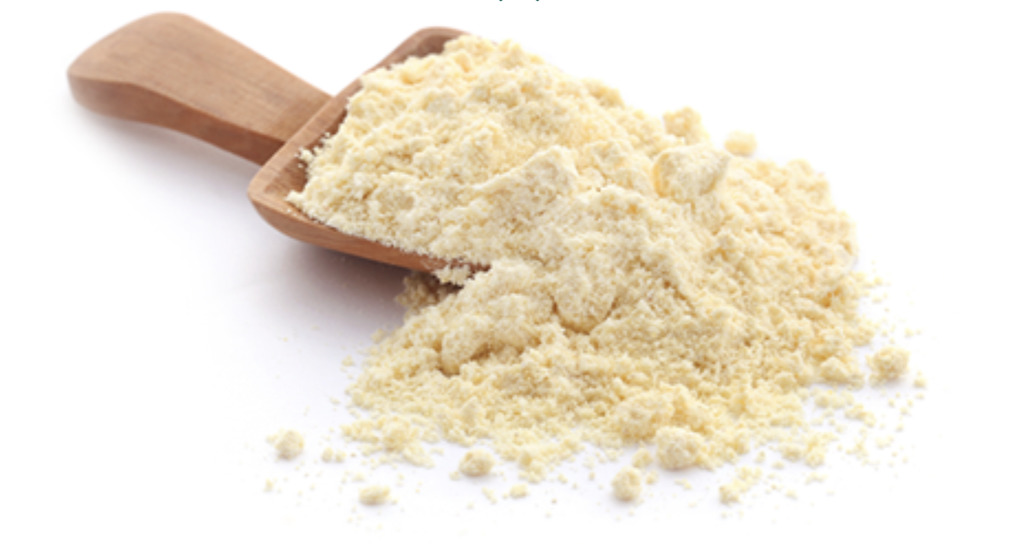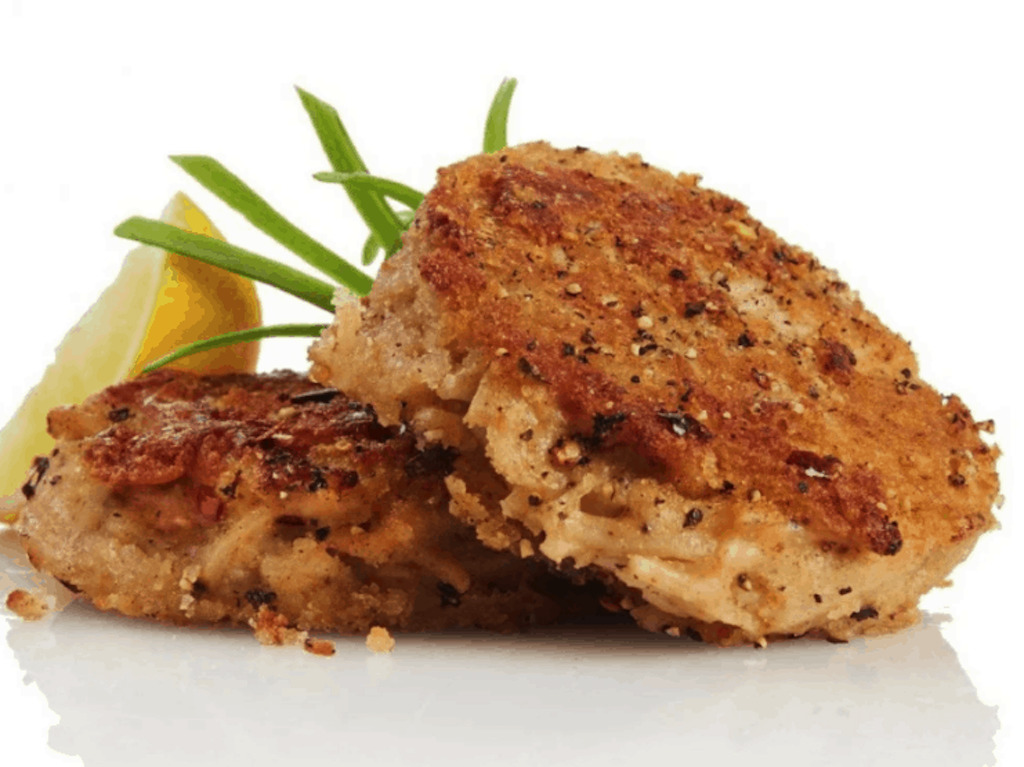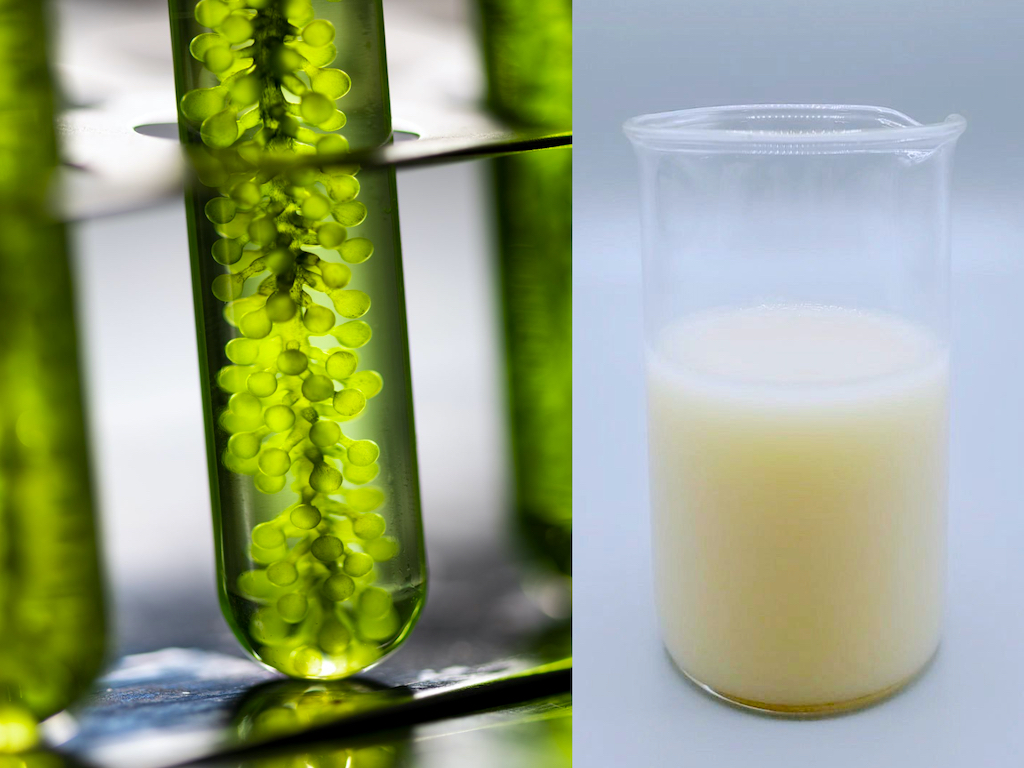5 Mins Read
Singapore-based Sophie’s Bionutrients has debuted what it claims to be the world’s first plant-based milk alternative made out of microalgae. Made from a neutral microalgae flour derived from the food tech’s proprietary strain using its patent-pending technology, the novel product stands out from existing vegan alternatives that tend to be nut-based or soy-based, and therefore unsuitable for allergies.
Sophie’s Bionutrients has developed an microalgae-based vegan milk alternative, the startup announced on Saturday (May 1). Unlike existing plant-based milks that often use nuts like almonds and cashews as its base, or soy, Sophie’s Bionutrients’ version is made from its concentrated microalgae flour.
It is free from all the main allergens, including lactose, and claims to be the world’s first-ever exclusively microalgae-based vegan milk alternative, with French startup Update Foods’ substitute containing a base of fava bean protein and algae oil. Other players in the space who feature algae alongside other ingredients include microalgae ingredient firms Triton Algae, Odontella and Algama, all of whom supply plant-based manufacturers.
According to founder Eugene Wang, Sophie’s milk “is a real world’s first “pure” microalgae protein based milk replacement.” While other microalgae companies like Solazyme launched an algal milk back in 2014 (the company changed their name to Terravia and was acquired by Dutch lactic acid outfit Corbion in 2017), theirs was made with whole protein (aka raw biomass) and included flavourings, other plant-based ingredients for texture and agal and plant out. Wang explains that Sophie’s version is made with extracted (isolated) protein from microalgae”. Given that Sophie’s BioNutrients is providing a platform for alternative dairy makers, with the company focused on serving the B2B market, “this plant milk is truly the world’s first plant milk made only with 100% microalgae protein flour to allow food manufacturers to add any of the ‘other’ ingredients to customize the taste and texture”.
The Singapore startup creates its neutral-coloured microalgae flour using a proprietary strain of microalgae, which is grown in its bioreactors that require minimal water and uses local food waste as its feedstock, such as spent grains from breweries, by-products from tofu production and molasses from sugar refineries.
By virtue of eliminating the need for animal agriculture, all plant-based milks are far more carbon-friendly than its traditional counterparts. But Sophie’s Bionutrients’ patent-pending in-house process is even more sustainable, not only incorporating food waste, but also enabling production outputs that are ten-times higher than conventionally-grown microalgae in sunshine pond operations.

We believe we can transform the way we live, produce and consume food for the better.
Eugene Wang, Co-Founder & CEO, Sophie’s Bionutrients
It takes just three days to harvest the microalgae, which is then turned into a flour. To create its plant-based milk, Sophie’s Bionutrients concentrates the protein-rich flour. The final product is a vegan-friendly milk that contains high-quality essential amino acids and boasts a nutritional profile that rivals dairy-based cow’s milk.
Sophie’s Bionutrients says that its formula can also be tailored by tweaking the ratio of its water-soluble microalgae flour that is homogenised with water. This can help elevate the protein content of the dairy alternative by up to 50%, and can also improve the textural and sensory qualities of the product, such as its creaminess.
Currently, the first sample of the firm’s alternative milk bears a similar texture of existing nut-based milks, which tend to be more watery than average dairy milks.
Commenting on the development of their microalgae milk alternative, co-founder and CEO Eugene Wang said: “Through further refinement with food and beverage producing partners developments like this one, the world’s first allergen-free microalgae milk, we believe we can transform the way we live, produce and consume food for the better.”
Wang started the company with co-founders Barnabas Chan and Kirin Tsuei in 2017, with the view to accelerate sustainable and cost-effective food solutions by harnessing the power of algae. Beyond developing alternative dairy, the startup hopes to apply its microalgae tech to create substitutes for everything from plant-based meat to functional supplements.
“Sophie’s micro-algae has a whole-wheat flour colour that can take on unlimited forms, textures or colours…[and] can be used to develop almost any food,” said the firm in a press statement.
Read: 8 sustainable startups using algae to make everything from T-shirts to vegan shrimp

We are constantly on the lookout for partners who can help us develop new and exciting products to showcase the capability and versatility of microalgae flour.
Eugene Wang, Co-Founder & CEO, Sophie’s Bionutrients
Previously, the startup developed burger patties using its microalgae protein ingredient produced using its next-generation bioreactor tech, which can be set up in urban spaces, making it especially handy for import-reliant cities like Singapore who are looking to bolster their local food production capabilities.
Their process has even won them the top prize at the Sustainable Food Systems Challenge pitching competition hosted by the accelerator MassChallenge Switzerland in late April, which saw Sophie’s Bionutrients demonstrate how its microalgae-based solutions could be rapidly scaled up using food processing giant Bühler Group’s resources.
“Winning the pitching competition validates our thesis that unlocking macro-nutrients at the micro-level is the only way forward to a sustainable future that creates a minimal footprint while fulfilling the rising needs of the global population,” said Wang.
“Revolutionising supply chains through sustainable urban protein production starts by scaling processes with the help of corporations like Bühler.”
To that end, Wang and the team are now in the process of co-developing new plant-based alternative proteins, with microalgae-based crab cakes and protein crackers among the first products in their pipeline.
Sophie’s Bionutrients’ strategy is to work with companies who are expanding their alternative protein product portfolio and looking to incorporate their microalgae solutions, a similar approach that fellow B2B microalgae startup Triton Algae, who recently launched a vegan tuna analogue, has chosen to take. “We are constantly on the lookout for partners who can help us develop new and exciting products to showcase the capability and versatility of microalgae flour,” explained Wang.
“We believe in harnessing the power of nature to build a sustainable, greener future through environment-friendly alternate food solutions. We believe that microalgae is the best place to help us achieve this. It is the superfood of the future.”
Lead image courtesy of Sophie’s Bionutrients / iStock.




